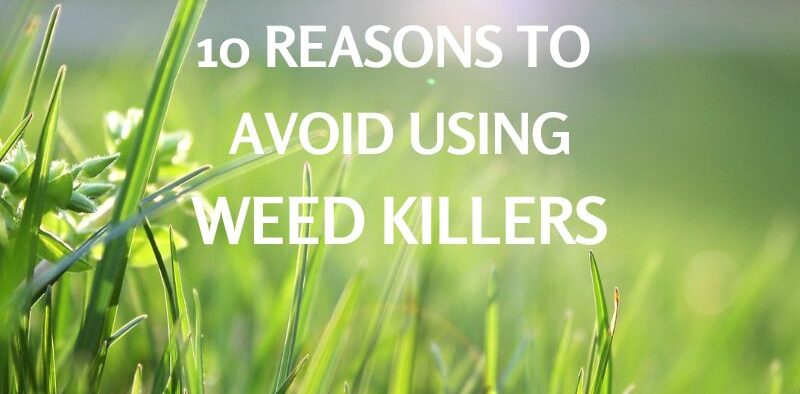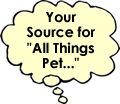Ten Reasons to Avoid Using Weed Killers
Share

There are a lot of reasons to avoid using chemicals in your pet-friendly yards. Not only are they toxic to pets, they destroy our soil and water, and can cause serious health problems for us and our pets. Besides, there are plenty of natural ways to control weeds. Today, we want to discuss why chemical weed management is so awful for you and your pets.
A Brief History of Glyphosate
Glyphosate, the active ingredient in the widely-used herbicide Roundup, has become a subject of intense scrutiny and debate in recent years. Developed by Monsanto in the 1970s, Roundup revolutionized agricultural practices by providing a seemingly effective and versatile solution to weed management. However, its widespread use has sparked concerns regarding its impact on human and pet health, the environment, and agricultural sustainability.
As regulatory agencies, scientists, and advocacy groups continue to assess the safety and implications of glyphosate-based herbicides, the discourse surrounding Roundup has evolved into a complex and contentious issue.
Here are several reasons why some people choose to avoid using Roundup:
Health Concerns
Roundup contains glyphosate, which has been classified as a “probable human carcinogen” by the International Agency for Research on Cancer (IARC), a branch of the World Health Organization (WHO). There are concerns about its potential to cause cancer and other health issues in humans.
Environmental Impact
Glyphosate and other chemicals in Roundup can persist in the environment, potentially harming non-target plants and animals. There are concerns about its impact on biodiversity and ecosystems.
Development of Resistant Weeds
Overuse of glyphosate can lead to the development of glyphosate-resistant weeds, which require increased amounts of herbicides or different, potentially more harmful chemicals to control.
Controversial Regulatory Decisions
Regulatory decisions regarding the safety of glyphosate have been controversial and subject to debate. Some argue that regulatory agencies have not adequately considered the potential risks associated with glyphosate use.
Potential Harm to Non-Glyphosate Resistant Crops
Glyphosate can damage or kill non-resistant crops if not used carefully, posing risks to farmers and food production systems.
Impact on Soil Health
Glyphosate can affect soil microbial communities and nutrient cycling, potentially disrupting soil ecosystems and long-term soil fertility.
Concerns About Water Contamination
Runoff from fields treated with glyphosate can contaminate water sources, posing risks to aquatic ecosystems and potentially human health if contaminated water is consumed.
Public Perception and Consumer Demand
With increasing awareness about the potential risks associated with glyphosate, there is a growing demand for alternatives and a preference among some consumers for products that do not contain glyphosate.
Legal Liability
In some cases, the use of glyphosate-containing products like Roundup has led to legal challenges and liability for individuals and companies, particularly regarding claims of health impacts.
Availability of Alternatives
There are alternative methods for weed control that do not rely on glyphosate or synthetic herbicides, including mechanical methods, crop rotation, mulching, and organic weed control practices.
When we make choices for ourselves, it almost always impacts others. That’s why we need to make good choices. Whether we choose to use a toxic herbicide or non-toxic herbicide can often make the difference in having safe drinking water or safe crops. Choose wisely. The world you impact is the one you live in.









